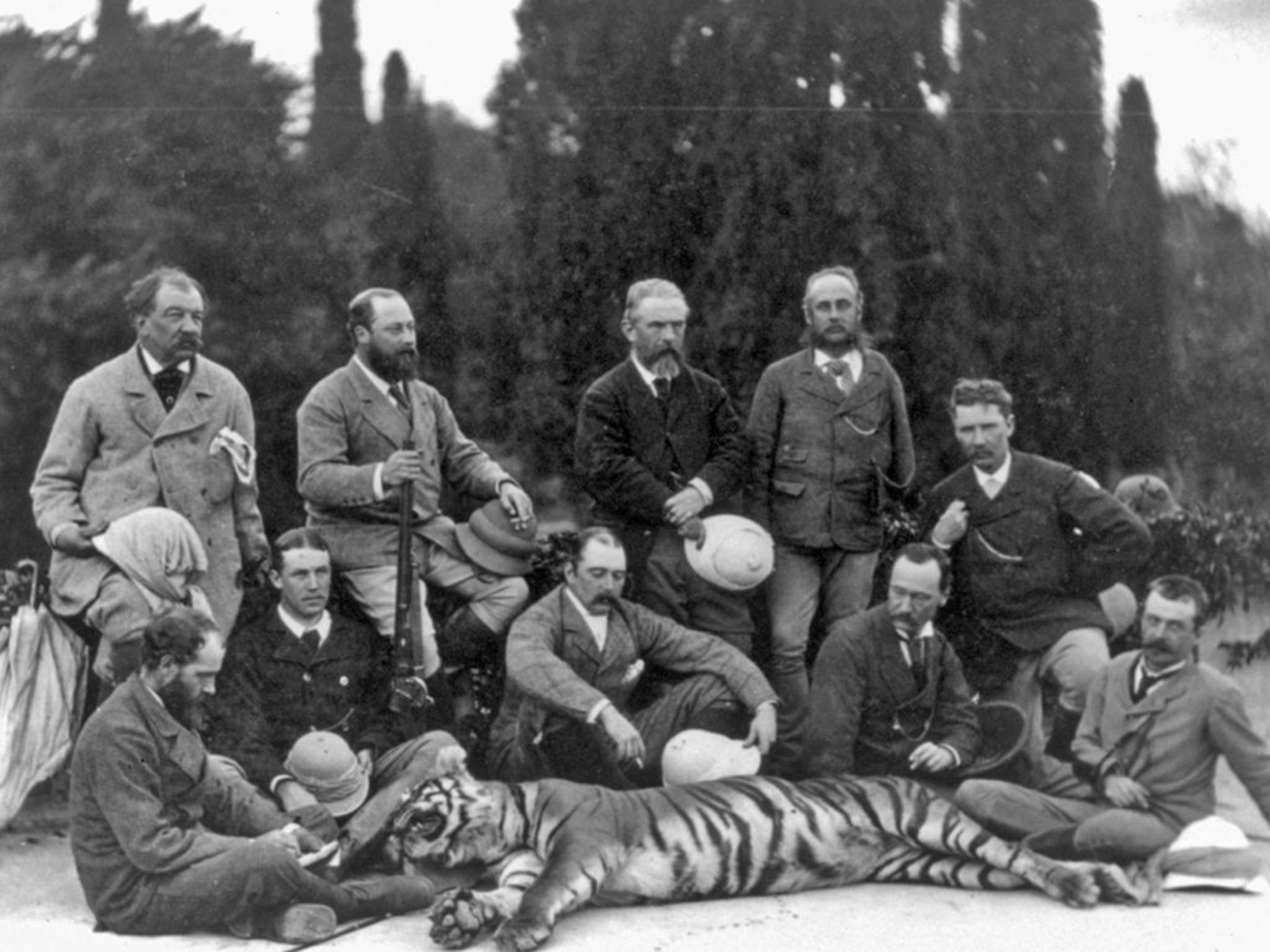Sunday trading laws: Awake, puritans of England, this is your moment
Protecting our right to not be able to shop on Sunday is a cause many different groups could rally around

On the face of it, nothing could be more absurd, or riper for superannuation, than the Sunday trading laws, those hidebound proscriptions from a vanished age – or so the argument runs – that prevent a shop with more than 3,000 square feet of space from opening its doors for more than six hours on the Sabbath. And nothing, surely, could be more symbolic of the Chancellor’s plans to, as he rather coyly put it, “ensure a truly national recovery”, here in our high-octane consumer-driven, 24/7 society, than the scheme announced in last week’s Budget to allow individual communities to decide whether or not these rules for England and Wales should be relaxed.
No doubt it is absurd, and inconvenient and possibly even undemocratic, that the average citizen who feels the need of a new toothbrush at 5.30pm on a Sunday can’t immediately sprint down to Waitrose to buy one – we live, after all, in a world where whims are there to be gratified and to tell someone that he or she can’t have something is usually seen as the denial of a basic human right. On the other hand, seasoned observers of the Chancellor’s style will perhaps have remarked the faint tentativeness of this intervention in the field of shop opening. Certainly, there was talk of the public’s “growing appetite” for Sunday retailing. There was also mention of the shop-owner’s need to take on upstart competition from cyber-space, but at the same time Osborne was careful to note that the new powers “won’t be right for every area” and will, consequently, be devolved to mayors and local authorities rather than constituting a single, all-purpose law.
And if the Chancellor seemed to be pulling his punches, then public and commercial reaction looked more equivocal still. Several of the big retailing chains had their doubts. If some of the vox pops quoted in national newspapers were hot for an arrangement that suited their “busy lifestyles”, then others were equally keen that shopworkers shouldn’t be exploited or – a very common criticism of extended Sunday opening – that the advantages of having one day in the week that isn’t like the other six go well beyond religious principle. I can reveal that the Jan McFarlane whose letter on this subject appeared in our sibling paper i the other day is actually the Archdeacon of Norwich writing incognito, but even A C Grayling would probably agree with her conclusion that “we are rapidly becoming a country full of people who don’t know what to do unless it involves shopping”.

One of the great fascinations of the Sunday trading debate is its exposure of the two contending varieties of modern conservatism: the neoliberal brand that wants to “set the people free” by encouraging them to shop and gamble away to their heart’s content, and the brand that espouses the genuinely conservative value of wanting things to stay the same. The other, it might be argued, is the nature of the coalition that rises up to oppose any relaxation of existing arrangements: cross-party, in that its ranks extend to arch conservatives and wary trade unionists, sometimes religious, sometimes humanist, but above all offering proof of the continued existence of a moral position which, though occasionally thought to have vanished, turns out to be very much alive.
The difficulty in verifying the survival of British puritanism is complicated both by the reluctance of most of its sympathisers to identify themselves, and the gradual sloughing off of the religious element that dominated its activities until, perhaps, the first half of the 20th century. As to how puritanism might be defined here in 2015, it consists, broadly speaking, of an unshakeable belief that the instant gratification of a wish can’t be good for you; that ease, sloth and luxe are positively bad for you (“your decadent sin will reap discipline”, as Mark E Smith put it in the Fall classic “New Puritan”); and that self-denial is, of its very nature, guaranteed to make you a better person – or, rather, a less bad person. Pleasure comes with delay, patience, justification; and not having that toothbrush at 5.30pm on a Sunday will make you relish it all the more at 8.30am on a Monday.
There is a tendency among social historians – and particularly among liberal-minded newspaper editors – to assume that native puritanism was always the redoubt of a small minority, shipped in by Oliver Cromwell and the Barebones parliament, say, and imposed on the sensual, fun-loving masses by force. But a glance at the last three centuries or so of English history demonstrates quite how entrenched this tradition became – certainly by the early Victorian age and the arrival of an upwardly-mobile middle class espousing the virtues of frugal living and making do. Queen Victoria, for example, was popular for her comparatively modest lifestyle. Edward VII, when Prince of Wales, was criticised for his extravagance – for behaving with aristocratic dash when the tendency of the age was for self-imposed privation.
A century and a half later, modern puritans can be defined not only by their reluctance to have fun but by their suspicion that other people ought not to be having it either, an attitude encapsulated by Sir Toby Belch’s remark to Malvolio in Twelfth Night: “Fool! Dost thou think, because thou art virtuous, there shall be no more cakes and ale?” The spheres in which they operate are, inevitably, legion. The League Against Cruel Sports – now agitating in advance of this week’s fox-hunting debate – is full of them, and so are several of the environmental movements. In fact, the whole climate change debate was a godsend for the puritan, who discovered that he, or she, now had a valid scientific objection to various activities such as driving a car or travelling in an aeroplane which had previously stirred only an instinctive dislike.
If all this sounds slightly disparaging, then I should say that, as the product of a middle-class provincial home and the great-grandson of a small grocer, I am a puritan myself, whose objections to the extension of Sunday trading hours are to a certain extent based on a conviction that shopworkers have a bad enough deal already but predominantly grounded in the assumption that all this shopping can’t be good for us, and the less you have of something, the more you are likely to value it. Only the other month I was served up with a practical demonstration of this credo when, turning up at a crowded Tube station in north London on my way to the Championship play-off finals, it was suggested to me, by a helpful member of staff, that I wave my credit card at the entrance gate rather than queueing up at the ticket machine – the moral equivalent, it seemed to me, of eating a Mars bar at 11am or drinking a glass of champagne in the absence of some titanic personal achievement.
The point about this heaving mass of residual native puritanism is that, with the exception of the interest groups listed above, so little use is made of it. Given that the powers have been devolved and that the spectre of local democracy has been invoked, resistance to Sunday trading would make a perfect cause for the Labour Party to unite around. Trade union allies would love it. Old-fashioned conservatives will sympathise. There are splendid opportunities for holding rallies outside supermarkets and convincing older members that the events of the past few months have not turned us all into a collection of capitalist stooges. Curiously enough, a Sunday evening picket of the branch of Waitrose in Eaton, Norwich, is one of the few political demonstrations I could see myself attending, and I humbly offer it up to Liz Kendall as a modest preliminary to getting this great movement of ours back on track.




Join our commenting forum
Join thought-provoking conversations, follow other Independent readers and see their replies